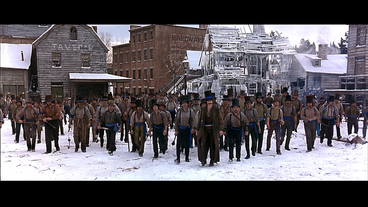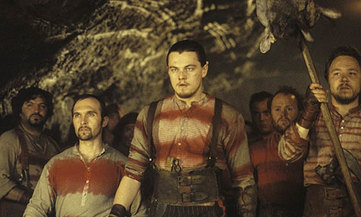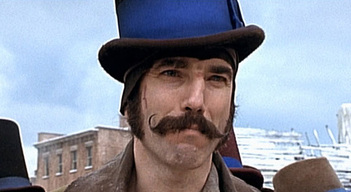
Martin Scorsese is a filmmaker who has arguably come to have the biggest sway over the cinematic representation of New York on film (the only other real contenders being Woody Allen and Spike Lee). His love of the city is clear, his fascination with its people pervasive and his interest in its history is more than apparent. Years ago, in an interview in which he recounted the profound effect New York had on him, he said that the city of his birth is the distillation of all things in the United States.
He said that sometimes when he goes to say “New York,” he ends up saying “America.”

Day-Lewis has proved himself time and again a fiercely committed and capable actor, and his portrayal of Bill ‘The Butcher’ Cutting is no exception (many argue he is the one true merit of this film). Bill is himself a man driven by ferocity in all its forms: hatred, passion, anger, patriotic zeal, he lives as a man, perhaps the man to be feared. And this monologue speaks greatly of that man and the principles he holds to. Day-Lewis sells it all, baring Bill’s mix of respect, melancholy, shame and pride relating to the man he calls The Priest. The words come out of him with a slight, but audible tremble, as if he's only just able to keep his fierce awe in check. The story of this man is important to him, and he will make that known.

Nor will this speech be lost on those who care to see it as having a relational value in a post-9/11 climate calling from the city of New York’s violent beginnings.
Setting the scene: In the aftermath of an attempted assassination, in which Amsterdam saves Bill, the pair make their way to a brothel. Amsterdam later wakes in the middle of the night to find Bill, draped in the American flag, sitting watching over him. Not knowing Amsterdam’s parentage, Bill recounts to him the tale of the last honourable man…
Follow Paul onTwitter!

 RSS Feed
RSS Feed
